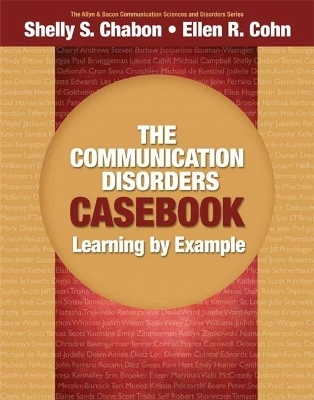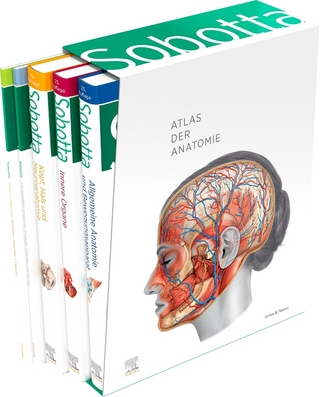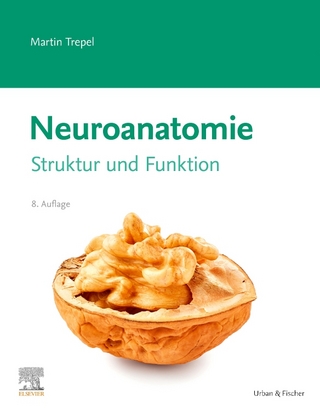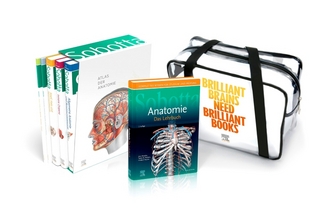
Communication Disorders Casebook, The
Pearson (Verlag)
978-0-205-61012-9 (ISBN)
This pioneering first edition case-based text presents a person-centered approach to a variety of speech, language, and hearing problems in individual patients of all backgrounds and ages. Each case, which profiles unique client traits as well as representative clinical patterns, inspires opportunities for the integration of course information with facilitating clinical application — and brings the clinical process to life.
Organized by client age and disorder category, Communication Disorders: A Case Based Approach emphasizes the unique experiences and perspectives of a number of experts and master clinicians. Every case follows a systematic organizational framework that considers the relevant facts and values and beliefs of those involved. Each chapter includes a summary of conceptual knowledge areas important to an understanding of the case, a detailed case description, treatment options, and current references. Inclusive and comprehensive, this book provides a foundation to inspire future clinicians to participate in and contribute to the communication sciences.
Shelly Chabon PhD, CCC-SLP, is a Professor at Portland State University and an ASHA Fellow. She is the co-author of three books and a language intervention program. A member of the ASHA CFCC and Chair of the ASHA Board of Ethics, she received a Certificate of Recognition for Special Contributions in Higher Education and an Apple Award for outstanding teaching. Ellen R. Cohn PhD, CCC-SLP, is Associate Dean for Instructional Development at University of Pittsburgh’s School of Health and Rehabilitation Sciences and Associate Professor of Communication Science and Disorders. She is the coauthor of Videofluoroscopic Studies of Speech in Patients with Cleft Palate, and Diversity Across the Curriculum: A Guide for Faculty in Higher Education (Springer-Verlag Telos, 1989).
Part I. Introduction — Ellen Cohn (University of Pittsburgh) and Shelly Chabon (Portland State University)
Part II: Cases: Infant or Toddler
AUTISM: Developing a communication assessment & treatment plan for a toddler diagnosed with Autism Spectrum Disorders: Special considerations - Trisha Self & Terese Conrad (Wichita State University)
CLEFT PALATE: A toddler with cleft lip and palate: early therapy - Cynthia Jacobsen (Children’s Mercy Hospital and Clinics)
DEVELOPMENTAL DELAY: A toddler with delayed speech and developmental milestones - Carney Sotto (University of Cincinnati) and Erin Redle (Cincinnati Children’s Hospital Medical Center)
HEARING: An infant with a sensorineural hearing loss - Judith Widen, Sandra Keeneris, Teresa Kennalley, John Ferraro (University of Kansas Medical Center)
FRAGILE X SYNDROME: Jake: The move from early intervention to early childhood education for a child with Fragile X Syndrome - Gail Harris Schmidt ( Saint Xavier University in Chicago)
PRENATAL ALCOHOL/DRUG EXPOSURE: Alcohol and/or prenatal drug exposure - Dorian Lee Wilkerson (Hampton University)
SICKLE CELL DISEASE: Auditory and neurocognitive impact of Sickle Cell Disease in early childhood - Diane Scott - (North Carolina Central University)
SWALLOWING: Oromotor entrainment therapy to develop feeding skills in the preterm infant - Steven Barlow, MeredithPoore, Emily Zimmerman (University of Kansas)
Part III: Cases: Preschool Child
ANKLOGLOSSIA: To clip or not to clip…What is the answer? - Ann Kummer (Cincinnati Children’s Hospital Medical Center)
APRAXIA: The changing picture of Childhood Apraxia of Speech: From initial symptoms to diagnostic and therapeutic modifications - Jacqueline Bauman-Waengler (Marquette University) and Diane Garcia (University of Redlands)
AUGMENTATIVE COMMUNICATION: Pediatric AAC: Kelsey’s journey - Carla Wood Jackson (Florida State University)
AUTISM: Speech and language intervention for a child with autism; a relationship-based approach - Brookes Metzler (Kansas City Developmental Therapies)
BILINGUAL/LANGUAGE:
A preschool child who was internationally adopted - Jenny Roberts and Kathleen Scott (Hofstra University)
A bilingual preschool child - Noma Anderson (Florida International University), Shelly Chabon (Portland State University), Mariateresa Munoz (Florida International University)
CLEFT PALATE/SUBMUCOUS: Submucous cleft palate: A typical case of late diagnosis - Ann Kummer (Cincinnati Children’s Hospital Medical Center)
FLUENCY: A preschool child who stutters - Kristin Pelczarski & Scott Yaruss (University of Pittsburgh)
HEARING: Late-identification of hearing loss: A real-world story of how a child can fall through the cracks - Paul Brueggeman (University of South Dakota)
LANGUAGE/SLI: Preschool child with Specific Language Impairment - Tiffany Hogan (University of Arizona), Mindy Sittner (University of Kansas), Carole Wymer (University of Arizona), Rebecca Volk (University of Arizona)
PHONOLOGY/ARTICULATION: Complex disorder traits in a three year old boy with a severe speech sound disorder - Beate Peter (University of Washington, Seattle)
VISUAL IMPAIRMENT: Cognitive-linguistic intervention with a preschool child who has a visual impairment - Jean Pedigo (Children’s Center for the Visually Impaired)
Part IV: School Age Child
APRAXIA: Childhood apraxia of speech: Differential diagnosis and evidence-based intervention - Kathy Jakielski (Augustana College in Rock Island)
ARTICULATION/PHONOLOGY: Of mouth and mind: An articulation and phonological disorder in a young school-aged child - Sue Hale and Lea Evans (Vanderbilt University)
AUDITORY PROCESSING: A school-age child with auditory processing disorder - Deborah Moncrieff (University of Pittsburgh/Communication Science & Disorders)
AUGMENTATIVE COMMUNICATION: Assessment and intervention for a school-age child with complex communication needs and physical impairments - Pam Hart (Rockhurst University) and Suzie Wiley (The Rehabilitation Institute of Kansas City)
AUTISM: A school aged child with an Autism Spectrum Disorder - Erin Brooker Lozott & Jamie Schwartz (University of Central Florida)
BILINGUAL/LANGUAGE: Cultural and linguistic diversity: A bilingual child with a speech and language disorder - Brian Goldstein (Temple University)
CLEFT PALATE: Blowing bubbles and rubbing lips: No cure in sight - Eileen Marrinan & Robert Shprintzen (Upstate Medical University)
DYSARTHRIA: Acquired childhood dysarthria in a school-aged child - Petrea Cornwell (University of Queensland and Princess Alexandra Hospital, Brisbane Australia) and Louise Cahill (QLD Paediatric Rehabilitation Unit, Brisbane, Australia)
FLUENCY: Syllable timed speech to treat stuttering in a school-aged child - Cheryl Andrews, Natasha Trajkovski, & Mark Onslow (The University of Sydney)
Treatment of cluttering in a school-aged child — Kathy Scaler Scott(International Cluttering Association), David Ward (University of Reading, UK), Kenneth St. Louis (West Virginia University)
HEARING: Using the multisensory syllabic unit approach to treat the fricative productions of a child with moderate-to-severe hearing loss - Sheila Pratt (University of Pittsburgh/ Geriatric Research Education and Clinical Center)
LANGUAGE: A school-age child with Specific Language Impairment: A case of continuity - Amy Weiss (University of Rhode Island)
LANGUAGE/BEHAVIORAL DISORDERS: A school age child with behavior disorders and language-learning disabilities: Applying contextualized written language and behavioral support intervention - Robyn Ziolkowski & Howard Goldstein (Ohio State University)
LITERACY: Treating reading and spelling skills in an elementary student - Deborah Cron & Julie Masterson (Missouri State University)
LITERACY/PHONOLOGY: Enhancing phonological and literary skills in twins with highly unintelligible speech - Kathy H. Strattman & Barbara W. Hodson (Wichita State University)
SWALLOWING: Dysphagia in the schools: A case study - Emily Homer & Dorothy Kelly (St. Tammany Parish Schools)
VOICE: Vocal cord dysfunction in a teenaged athlete - Gail Kempster (Rush University)
Part V: Cases: Adult
APRAXIA: A novel combination approach to treating Apraxia of Speech - Julie Stierwalt & Joanne Lasker(Florida State University)
APHASIA: A case of Primary Progressive Aphasia in the later stages of the disease - Michael de Riesthal (Vanderbilt University School of Medicine)
Cognitive-communication impairments in a woman with right hemisphere disorder - Scott Youmans (Long Island University’s Brooklyn Campus)
A case of severe Wernicke’s receptive aphasia due to an underlying malignancy - Elaine Sands (Adelphi University)
APHASIA/AAC: Compensation for severe chronic aphasia using augmentative and alternative communication - Aimee Dietz, Miechelle McKelvey, Michele Schmerbauch, Kristy Weissling, Karen Hux (University of Nebraska-Lincoln)
APHASIA/MULTIPLE SCLEROSIS: Acute aphasia in
Multiple Sclerosis - Brooke Hatfield & Suzanne Redmond (National Rehabilitation Hospital)
ARTICULATION: Articulation errors secondary to dentures - Michelle Ferketic (Special Interest Divisions and International Liaison Programs of the American Speech-Language-Hearing Association)
AUTISM: An adult with high functioning autism: Language and communication challenges at work - Diane L. Williams (Duquesne University)
BILINGUAL/LANGUAGE: An adult who is a non-native speaker of English: High - Amee Shah (Cleveland State University)
An adult who is a non-native speaker of English: Low - Amee Shah (Cleveland State University)
DEMENTIA: An adult with dementia of the Alzheimer type screening assessment and cognitive linguistic interventions - Nidhi Mahendra (California State University East Bay)
FLUENCY: Treatment of stuttering for an adult - Sue Obrian (The University of Sydney), Mark Onslow (The University of Sydney), Ross Menzies (The University of Sydney), Tamsen St Clare (Westmead Hospital, Sydney)
HEARING: Adult audiologic rehabilitation: The case of the difficult patient? - Jill Preminger (University of Minnesota ) and Jonathan Whitton (University of Louisville School of Medicine)
Evaluation and management of vestibular problems and tinnitus following head trauma - Richard Roberts (Alabama Hearing & Balance Associates)
Sudden idiopathic SNHL: Autoimmune inner ear disease (AIED) - Laurie Wells(Associates in Acoustics, Inc.)
Noise induced hearing loss: A work related investigation — Deanna Meinke (University of Northern Colorado)
HEAD AND NECK CANCER: Management of a patient with advanced head and neck cancer - Roxann Diez Gross (University of Pittsburgh Medical Center)
LARYNGECTOMY: Mr. S: Successful voice restoration following total laryngectomy with TEP — Jodelle Deem & Ellen Hagerman (University of Kentucky)
SWALLOWING: Diagnosis and management of adult dysphagia - Christina Baumgartner (University of Kansas Hospital)
TRAUMATIC BRAIN INJURY: A holistic rehabilitation approach for a survivor of traumatic brain injury - Pat Kearns (Clinical Services at Quality Living, Inc), Janelle Ward (Clinical Services at Quality Living, Inc), Karen Hux(University of Nebraska — Lincoln), Dr. Snell (University of Nebraska — Lincoln)
VELOPHARYNGEAL DYSFUNCTION: Velopharyngeal dysfunction in an adolescent girl: Neurological, behavioral or anatomical in origin? - Jeff Searl (University of Kansas Medical Center)
VOICE: Voice therapy for an elementary school teacher with vocal fold nodules - Judy Wingate (University of Florida)
Finding Catherine’s voice - Leo Dunham(Hallmark Rehabilitation at Liberty Terrace Care Center, Liberty, MO)
Becoming who you are: A voice communication group program for a male to female transgender client - Vicki McCready, Michael Campbell, Sena Crutchley, Colette Edwards (University of North Carolina at Greensboro)
| Erscheint lt. Verlag | 15.7.2010 |
|---|---|
| Sprache | englisch |
| Maße | 215 x 275 mm |
| Gewicht | 1379 g |
| Themenwelt | Schulbuch / Wörterbuch ► Wörterbuch / Fremdsprachen |
| Geisteswissenschaften ► Psychologie ► Verhaltenstherapie | |
| Geisteswissenschaften ► Sprach- / Literaturwissenschaft ► Sprachwissenschaft | |
| Medizin / Pharmazie ► Gesundheitsfachberufe ► Logopädie | |
| Medizin / Pharmazie ► Medizinische Fachgebiete ► HNO-Heilkunde | |
| Medizin / Pharmazie ► Medizinische Fachgebiete ► Pädiatrie | |
| Studium ► 1. Studienabschnitt (Vorklinik) ► Anatomie / Neuroanatomie | |
| Studium ► 2. Studienabschnitt (Klinik) ► Pathologie | |
| Sozialwissenschaften ► Pädagogik ► Sonder-, Heil- und Förderpädagogik | |
| ISBN-10 | 0-205-61012-9 / 0205610129 |
| ISBN-13 | 978-0-205-61012-9 / 9780205610129 |
| Zustand | Neuware |
| Haben Sie eine Frage zum Produkt? |
aus dem Bereich


